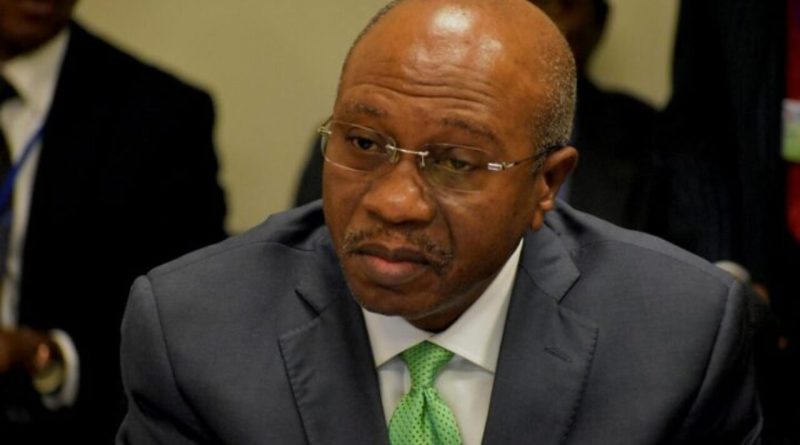Prosecution, defence disagree over stalled forensic examination of phone in Emefiele’s fraud trial
A court-ordered forensic examination of a phone central to the fraud trial of former Central Bank of Nigeria (CBN) Governor Godwin Emefiele has stalled in Lagos.
Both the prosecution and Mr Emefiele’s defence team traded accusations at the Lagos State Special Offences Court in Ikeja on Tuesday over the botched exercise.
Mr Emefiele’s lawyer, Olalekan Ojo, a Senior Advocate of Nigeria (SAN), said the exercise could not proceed because the Economic and Financial Crimes Commission (EFCC) repeatedly obstructed efforts to access the device, an iPhone 12.
But EFCC’s prosecution lawyer, Oyedepo Rotimi, also a SAN, blamed the setback on the defence’s engagement of an unqualified expert.
“The defence’s expert conducted part of his analysis via a live internet connection, which breaches forensic standards,” Mr Oyedepo said.
The EFCC is prosecuting Mr Emefiele , who was alongside a co-defendant, Henry Omoile, on charges of fraud involving $4.5 billion and N2.8 billion in total.
In the case, the former CBN governor is charged with counts of receiving gratification and making corrupt demands, while his co-defendant is facing charges related to the unlawful acceptance of gifts by agents.
President Bola Tinubu, who came to power in May 2023, removed Mr Emefiele from office in June 2023, over corruption allegations and other irregularities. Mr Emefiele, who was the CBN governor for eight years, was yet to complete his second term of five years when Mr Tinubu removed him from office.
The EFCC had tendered an iPhone 12 from which some WhatsApp conversations allegedly involving Mr Emefile and his co-defendant were extracted as an exhibit to support the prosecution’s case.
In June, the defence urged the court to grant them permission to call a forensic expert “to examine the mobile device and the printed conversations allegedly linked to the defendants.”
According to Vanguard newspaper, the judge, Rahman Oshodi, subsequently granted the defence’s request by ordering that the device be subjected to a scientific forensic analysis.
He ordered that the forensic examination be carried out by experts representing the prosecution and the defence.
The joint examination exercise was then scheduled for 24 and 25 September.
Report of exercise
Reporting the outcome of the exercise to the judge on Tuesday, defence lawyer, Mr Ojo, SAN, said the exercise was stalled because EFCC refused to produce the phone for examination.
“The first obstacle was that the EFCC insisted the device could not be fully exposed to the team,” Mr Ojo said. “Then, on the second day, even when the (court) registrar clarified that your lordship’s order covered both the phone and its WhatsApp contents, the EFCC representatives refused to produce it when the Apple expert demanded it. We were told a categorical ‘no.’”
The lawyer, who accused the EFCC of disobeying the court’s order, appealed to the judge to issue a fresh order directing the EFCC to allow unrestricted access to the phone and its data.
Mr Oyedepo, EFCC’s lawyer, more or less confirmed that the phone was not released to the defence’s expert.
He said the expert presented by the defence was unqualified and unprofessional.
He said the expert lacked a verifiable laboratory or office, while expressing fear the device could be compromised if not handled professionally.
“The defence’s expert conducted part of his analysis via a live internet connection, which breaches forensic standards. Connecting Exhibit E to the internet could cause data to auto-sync, thereby altering or corrupting the contents,” Mr Oyedepo said.
He said the iPhone had been kept in flight mode to ensure it remained unaltered.
He explained that the prosecution had no intention of blocking the exercise.
“But we insist that the process must be handled professionally to preserve the integrity of the evidence,” Mr Oyedepo said.
In their response, Mr Ojo, joined by the second defendant’s lawyer, A. Kotoye, also a SAN, urged the court to suspend further proceedings until the forensic examination was carried out and a report issued on it.
The lawyers maintained that the WhatsApp chats they sought to authenticate through the forensic examination of the phone were central to their clients’ defence. They argued that it would be unfair if its request was not granted.
The judge noted the concerns raised by both sides and directed the EFCC to file its forensic report within 24 hours.
He also ordered both parties to adopt electronic filing and service of documents to avoid unnecessary delays in the high-profile trial.
The judge granted permission to the prosecution witness, who was said to have travelled from Abuja for the hearing, to continue his testimony.
READ ALSO: Emefiele seeks forensic examination of mobile phone exhibit, EFCC objects
Testimony
Prosecution witness Alvan Gurumnaan, who is an EFCC operative, presented a series of WhatsApp conversations, printouts, which were admitted as Exhibits P1 to P27.
He said the transactions involving large amounts of foreign currency were coordinated through messaging platforms.
He also said chat records and other exhibits revealed a consistent pattern of cash movements linked to the defendants.
Mr Gurumnaan said investigators interviewed several individuals, including staff members of the CBN and Zenith Bank, as part of their probe.
Trial judge, Mr Oshodi, adjourned further hearing until Wednesday (8 October)


